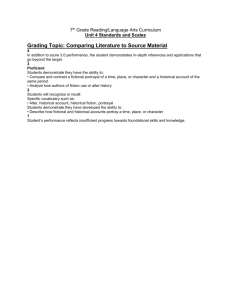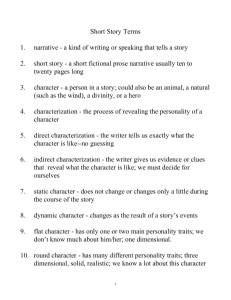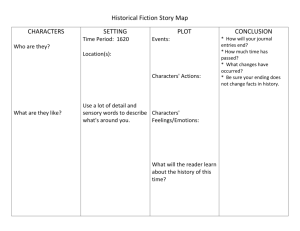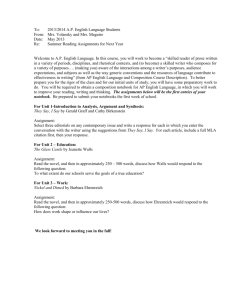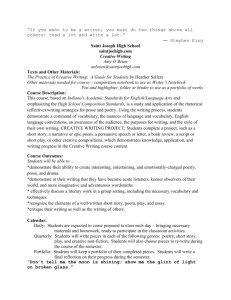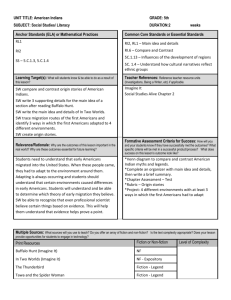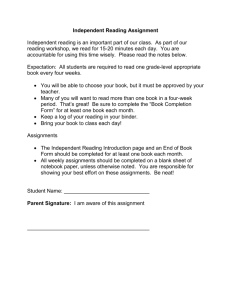Imagining Stories from Ordinary Moments
advertisement
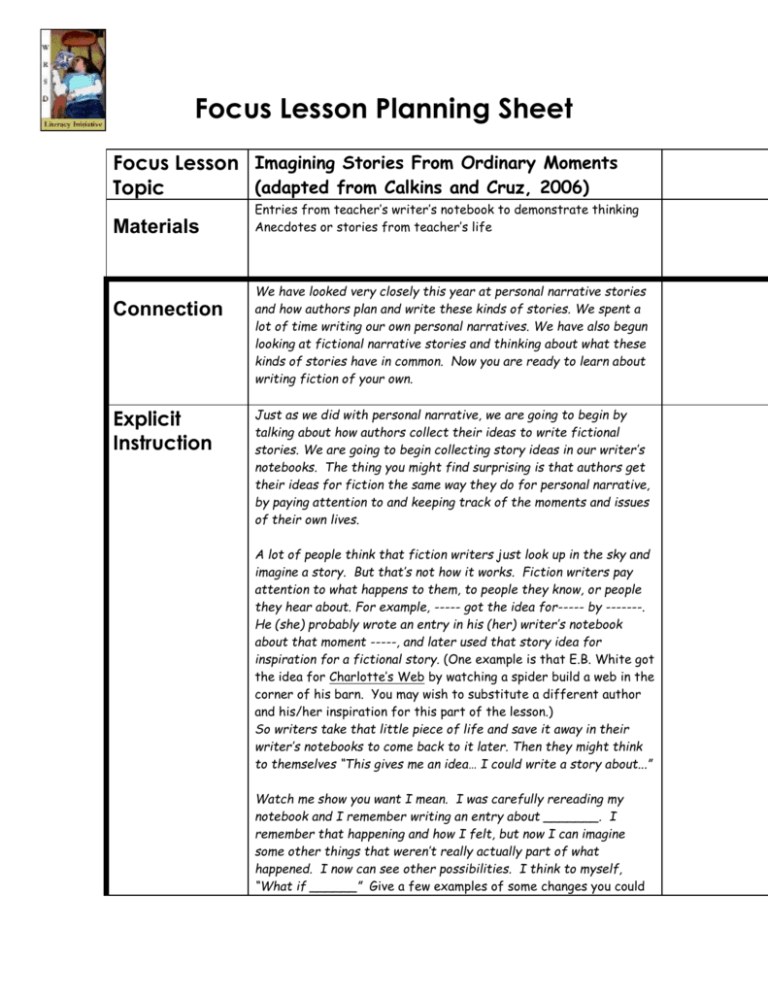
Focus Lesson Planning Sheet Focus Lesson Imagining Stories From Ordinary Moments (adapted from Calkins and Cruz, 2006) Topic Materials Connection Explicit Instruction Entries from teacher’s writer’s notebook to demonstrate thinking Anecdotes or stories from teacher’s life We have looked very closely this year at personal narrative stories and how authors plan and write these kinds of stories. We spent a lot of time writing our own personal narratives. We have also begun looking at fictional narrative stories and thinking about what these kinds of stories have in common. Now you are ready to learn about writing fiction of your own. Just as we did with personal narrative, we are going to begin by talking about how authors collect their ideas to write fictional stories. We are going to begin collecting story ideas in our writer’s notebooks. The thing you might find surprising is that authors get their ideas for fiction the same way they do for personal narrative, by paying attention to and keeping track of the moments and issues of their own lives. A lot of people think that fiction writers just look up in the sky and imagine a story. But that’s not how it works. Fiction writers pay attention to what happens to them, to people they know, or people they hear about. For example, ----- got the idea for----- by -------. He (she) probably wrote an entry in his (her) writer’s notebook about that moment -----, and later used that story idea for inspiration for a fictional story. (One example is that E.B. White got the idea for Charlotte’s Web by watching a spider build a web in the corner of his barn. You may wish to substitute a different author and his/her inspiration for this part of the lesson.) So writers take that little piece of life and save it away in their writer’s notebooks to come back to it later. Then they might think to themselves “This gives me an idea… I could write a story about...” Watch me show you want I mean. I was carefully rereading my notebook and I remember writing an entry about _______. I remember that happening and how I felt, but now I can imagine some other things that weren’t really actually part of what happened. I now can see other possibilities. I think to myself, “What if ______” Give a few examples of some changes you could make/add to the original episode as you begin to fictionalize it and plan for a fictional story. So now I think that this is my story idea: Briefly tell about a story that encompasses the original small moment referred to in the Writer’s Notebook, but that now has several changes and/or additions. (For example, if your original entry was something about going to a baseball game maybe now you could describe a story idea where a character goes to a game but catches a fly ball and then is able to meet the player who hit the ball with whom he/she becomes friends and learns baseball tips. The original small moment part of life is encompassed in the new “fictionalized” story idea.) Guided Practice You heard my original entry, my small moment, from my writer’s notebook which I reread and thought and imagined more about. Then you heard my story idea based on that small moment. Turn and talk to a partner about how they are the same and how they are different, especially what you noticed that I changed or added in my story idea. Allow for discussion. Send Off [for Independent Practice] So writers of fiction need imagination to write, but they don’t imagine everything. They look into the small moments of their lives and see other possibilities. That’s how they use their imaginations, to see story possibilities based in ordinary small moments. Today reread your notebooks. If you read an entry which inspires you in imagine other possibilities, mark it. You may wish to come back to this for a fiction story idea later. Group Share Did anyone find an ordinary small moment entry that inspired them to imagine other possibilities?

